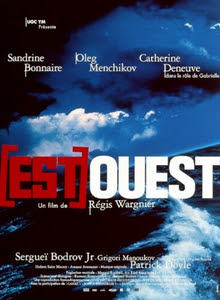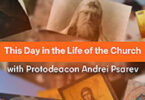Metorpolitan Evlogii addressed his flock, telling them to go back to Russia, on this day in 1945; and Metropolitan Seraphim (Lukianoff) of Western Europe passed away fourteen years later to the day, in 1959.
Metropolitan Seraphim belonged to the first generation of ROCOR bishops who were consecrated within imperial Russia. He graduated from Kazan Academy and, in 1914, became Bishop of Serdobol, vicar of Archbishop Sergii (Stragorodskii) of Finland and Vyborg. This was the title that Archbishop Seraphim received in 1918. In December of 1917, the Bolsheviks recognized the independence of Finland. The new government wanted to have a Finnish Church instead of a Russian one. In 1923, under the formal pretext that Archbishop Seraphim did not know Finnish, he was dismissed from his position as administrator of the diocese. Archbishop Seraphim became a vicar of Metropolitan Evlogii (Georgievskii), and was assigned to London. In the conflict between the ROCOR Council of Bishops and Metropolitan Evlogii, Archbishop Seraphim supported the ROCOR’s Supreme Church Authority and became the ROCOR counter-part to Metropolitan Evlogii in Western Europe.
During World War II, Metropolitan Seraphim supported the Nazis’ invasion of Russia with the special epistle:
“Faithful sons of Russia, the hour of the liberation of our long-suffering Homeland from the theomachist regime has come. The Führer of the German people, Chancellor Hitler, has proclaimed a crusade against the enslavers of Russia. A terrible, decisive struggle with the Red devils has begun. A holy war with the most wicked enemies of the Russian people and all of humanity has started. Many peoples of Europe have joined the Führer of the German people in the fight against these villains of the world. Russia is on the eve of being liberated and returning to a new, better life, to light, glory, greatness…. Let us all rise up as friends, as one person, to an honorable, armed struggle with the Red devil.”
As a result of his position during the war, Metropolitan Seraphim expected repercussions from the French Socialist government and unexpectedly joined the Moscow Patriarchate on August 31, 1945. Unlike Metropolitan Seraphim, Metropolitan Evlogii, at this time an exarch of the Ecumenical Patriarchate, had a longer history of fascination with “reviving Russia.” As early as February 18, 1945, he appealed to his flock to return back “home:”
“The Holy Mother Russian Church calls us to return to her bosom. Will we shy away from this maternal call? Our soul has suffered enough in exile in a foreign land. Time to go home. The highest church authority promises us a calm trajectory for our church life. I want to kiss my native Russian land. We, the old, want peace in the bosom of our dear Mother Church, so that we can find our final rest, and the young and mature, so that we can work on the revival of our Motherland and heal its gaping wounds. Without fear and doubt, without embarrassment, we will enter our native land: it is so good, so beautiful….” (Metropolitan Evogii’s Memoirs Putʹmoei zhizni [My Life’s Journey] Paris 1946, p. 613).
On September 2, 1945, Metropolitan Nikolai from Moscow, Metropolitans Evlogii and Seraphim served together at St. Alexander Nevsky Cathedral in Paris. A law issued in the USSR on June 14, 1946, offered Soviet citizenship to the former subjects of the Russian Empire. The very first passport was given to Metropolitan Evlogii. On August 8, 1946, he passed away.
His death and the beginning of the Cold War stopped the process of the integration of “Evlogian” parishes into the Moscow Patriarchate. The personality of its exarch in Western Europe, Metropolitan Seraphim (Lukianoff), did not appeal to many. Nevertheless, he ordained the future Metropolitan Anthony (Blum) and appointed him to England. In 1949, Metropolitan Seraphim was received back into the Russian Church Abroad. He soon changed his mind, returned to Moscow Patriarchate, and ten years later died in Hîrbovăț monastery in Moldova.
Sources:
Andrei A. Kostriukov, Russkaia Zarubezhnaia Tserkov’ v 1939-1964 gg [Russian Church Abroad in 1939-1964] (Moscow, 2015).
Viktor I. Kosik, Russkoe tserkovnoe zarubezh’e XX vek v biografiakh dukhovenstva ot Ameriki do Iaponii [Russian Ecclesiastical Diaspora: the Twentieth Centuries through biographies of clergy from America to Japan] (Moscow, 2008).
Mikhail V. Shkarovskii, “Russkaia Pravoslavnaia Tserkov’ Zagranitsei I ee obshchiny v Iugoslavii v gody Vtoroi mirovoi voiny” [Russian Church Abroad and its Communities in Yugosavia during World War Two], Khristianskoe chtenie 2-3, 2014.











